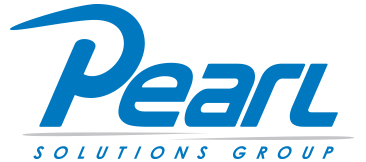Guest Post from the Microsoft 365 Team
Name a business challenge, and there’s probably a cloud app—or several—that promises to fix it. Cloud apps have been a boon for small businesses. You don’t need to invest in expensive infrastructure to manage business processes, such as human resources, project management, accounting, and customer relationship management. With a subscription-based model, it’s easy to get started, and you only pay for what you use. But if you aren’t careful, too many overlapping apps lead to inefficiencies and rising costs.
For many businesses processes, you have a choice between solutions that specialize in a specific task and solutions that address an end-to-end process or several business needs across your company. There are times when a focused app is the right approach, but it’s important to weigh those benefits against the advantages of a single consolidated solution. Here are five reasons why you should consolidate cloud apps.
1. Reduce IT costs
The most obvious benefit to consolidating apps is cost efficiency. While it’s true that subscriptions tend to be cheaper than hosting applications onsite, there are fees associated with cloud apps too. Most business apps charge a monthly fee based on the number of users or amount of storage used. These costs add up, especially if you’re paying for more than one app with similar functionality.
It can also be a hassle to manage multiple subscriptions. Not every company uses the same metrics to determine costs. Keeping track of what you’re paying for gets complicated when different teams use different apps. By consolidating billing, you’ll get a better view into what your company is using and how much value you’re getting out of your cloud apps.
2. Get more done
Beyond the hard costs associated with subscriptions, too many apps lower productivity. Like task switching in general, moving between different apps wastes time and frustrates your employees. Those lost minutes and hours stack up over time—time that your employees could use on higher value tasks. Here are a few examples of how consolidation can streamline work:
- A single app for chats, calls, and meetings allows employees to quickly switch communication modes. For example, if team members find that a chat is not resolving an issue, they can start a meeting with everyone in the chat with the click of a button.
- When working on a single project, your employees may need to communicate with a coworker, then collaborate on a document, and then revise a project schedule—all within a couple hours. Completing these tasks is much simpler if all the apps are accessible in a single platform, like Microsoft Teams.
- If information is housed in a single platform, employees won’t waste time opening several different apps to find what they’re looking for.
3. Simplify technology
Cloud apps are simpler to set up then on-premises solutions, but that doesn’t mean they are hassle free. Someone—typically IT—has to maintain them. This can include adding and removing users from apps as their roles at your company change, integrating apps with other systems such as an identity access management solution, and troubleshooting issues that your employees have with your software.
With fewer apps to support, you’ll free up IT to spend more time on bigger initiatives that will propel your business forward.
4. Access better insights
Data is one of your business’ greatest assets. Understanding who your best customers are, uncovering sales trends, and staying on top of production challenges all require data analysis. But if customer data, financial information, and project planning are split between several apps, you may miss important insights.
By consolidating apps into a single solution or a suite of well-integrated business intelligence tools, it’s easier for people to analyze data across your entire company and discover key insights that help you make smarter decisions. For example, if your team has easy access to customer data across all touchpoints of the customer lifecycle, they can anticipate needs and provide better service. Connecting sales data with employee utilization data may help you understand how to be more efficient with your resources. Plus, many platforms surface important metrics that you can review at a glance.
5. Tighten security
In today’s world, every device, user account, and app is a potential entryway for bad actors who want to steal data or otherwise disrupt your business. Using apps from several different vendors puts you at greater risk of a security breach because many people reuse the same password across several accounts. If one account is compromised, attackers can use that information to access other accounts, including your corporate network.
By reducing the number of apps your team uses, you simplify security. When employees use a single account to access multiple apps, you can apply the same security controls across all their apps. And with fewer apps to monitor, it’s more likely that you’ll catch security incidents before they do real damage to your company.
How to know if you have too many apps
Many cloud apps are easy to find and use. In fact, you may not be aware of all the apps that your company uses. But even if you’ve been very intentional about selecting apps for your company, there may still be opportunities to consolidate. A few indicators that your business uses too many apps are:
- Departments or project teams use different apps that perform similar functions. For example, if your marketing team shares files using Microsoft OneDrive, while your product development team uses Box.
- Team members are required to download data from one system and upload it to another to get work done. For example, sales may need to import customer information from a sales tracking tool to a project management tool after you close a sale.
- Important information is scattered across several different tools, requiring employees to search several apps to find what they need.
- Lack of visibility across your business makes it difficult to connect the dots between what’s happening across projects, resources, and revenues.
Cloud apps help you and your team work from anywhere. However too many apps can also reduce your effectiveness. To improve security, productivity, and cost management, take a look at comprehensive solutions to see if there are opportunities to reduce the number of apps your team juggles each day. Or get more detailed analysis about the potential cost savings of app consolidation and take a self-assessment to determine if simplifying your app ecosystem is right for your business.
Pearl Solutions Group is a Microsoft partner with expert professional service capabilities that can help you evaluate your current application resources and help determine if Microsoft 365 may be a more effective cloud solution for your business.




